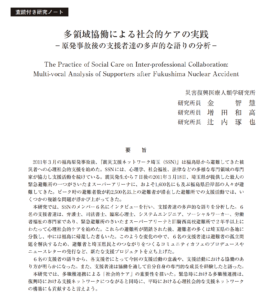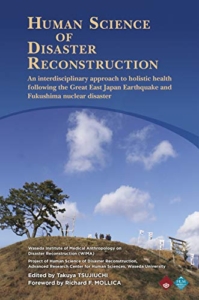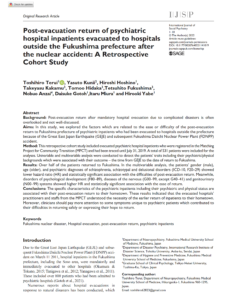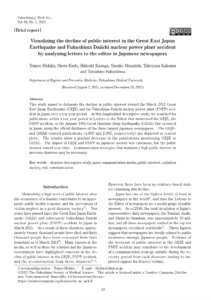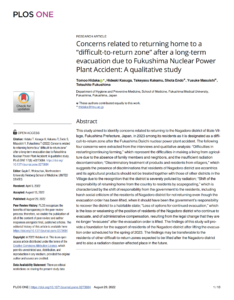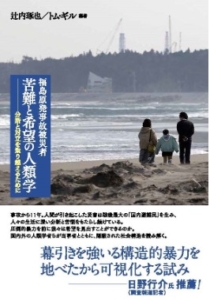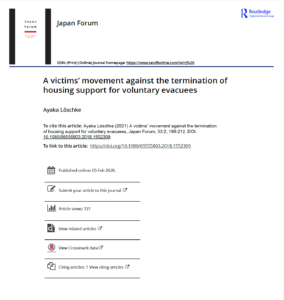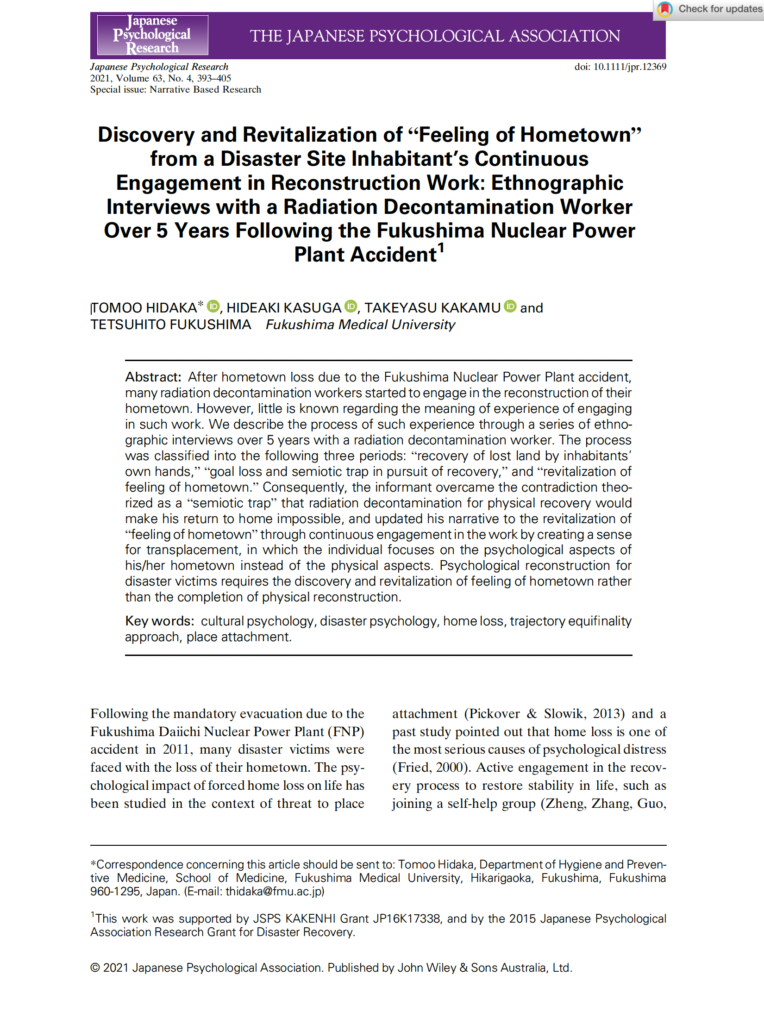
Abstract: After hometown loss due to the Fukushima Nuclear Power Plant accident, many radiation decontamination workers started to engage in the reconstruction of their hometown. However, little is known regarding the meaning of experience of engaging in such work. We describe the process of such experience through a series of ethnographic interviews over 5 years with a radiation decontamination worker. The process was classified into the following three periods: “recovery of lost land by inhabitants’ own hands,” “goal loss and semiotic trap in pursuit of recovery,” and “revitalization of feeling of hometown.” Consequently, the informant overcame the contradiction theorized as a “semiotic trap” that radiation decontamination for physical recovery would make his return to home impossible, and updated his narrative to the revitalization of “feeling of hometown” through continuous engagement in the work by creating a sense for transplacement, in which the individual focuses on the psychological aspects of his/her hometown instead of the physical aspects. Psychological reconstruction for
disaster victims requires the discovery and revitalization of feeling of hometown rather than the completion of physical reconstruction.
Key words: cultural psychology, disaster psychology, home loss, trajectory equifinality approach, place attachment.
